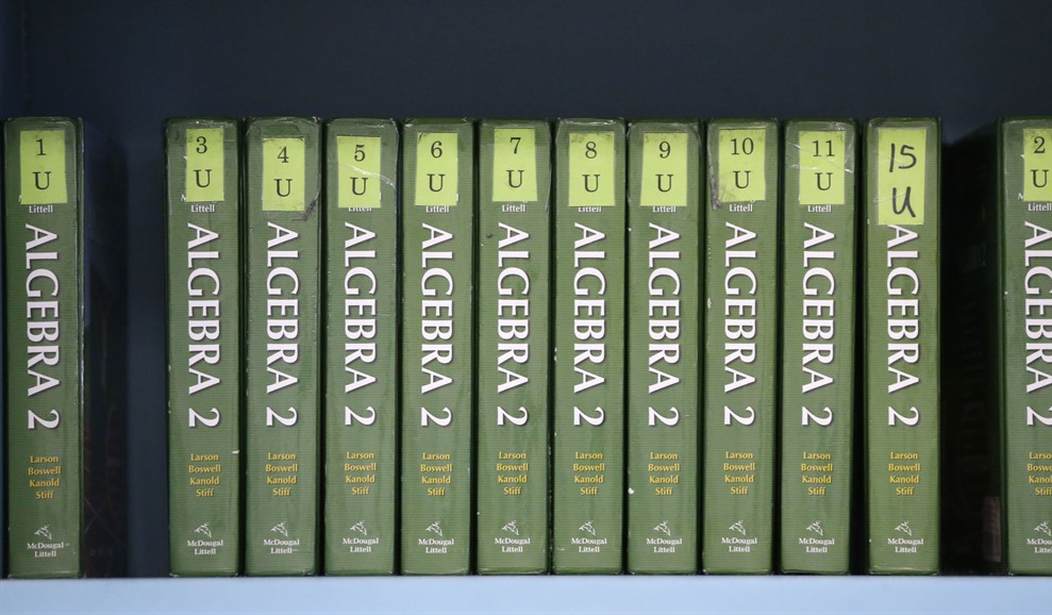In 1965, The Beatles sang, “One and one is two.”
Will the song continue to ring true?
Maybe not — at least where American math tests and our system of grading are concerned.
Apropos of educational evolution, Grand Valley State University Professor David Clark is part of a progressive charge. Via his upper-level Euclidean Geometry course, he’s employed innovation.
Whereas in times past, wrong answers would result in docked points, David recently took an alternate approach.
According to his article at EdSurge.com, the instructor was inspired by Susan D. Blum’s book Ungrading: Why Rating Students Undermines Learning.
He decided to give it a shot, going “fully gradeless.”
“I gave only feedback on student work,” he writes, “with no grades on any assignment.”
In doing so, it seems the issue transforms from simply how good the students are at math to the degree to which they excel at arguing:
The general plan was to have students describe how they met criteria for success that I laid out, include a portfolio of their work to support it, and decide for themselves what final course grade that led to.
Without grades, students willingly struggled, failed, reflected, tried again, and did an amazing job of supporting each other. https://t.co/q1LepZyWol
— EdSurge (@EdSurge) January 17, 2022
As described by his Fall 2021 instruction, “A portfolio is a carefully curated collection of work that tells a story.”
Your portfolio will tell the story of you as a mathematician and student of geometry from the first day of class to the last. Your goal is to convincingly argue that, by the end of the semester, you have met the criteria for a certain grade.
“If you make a convincing case,” he explains, “you’ll earn the grade that you are aiming for!”
His January 17th essay reflects upon not punishing pupils for errors and rewarding those who were their best advocates.
“Did my students learn?” he asks.
“After teaching at least 12 sections of geometry over the years, this was the best semester of geometry I’ve ever taught,” he reports.
Students were energetic, interested, asked great questions, engaged in excellent collaboration. They willingly struggled, failed, reflected, tried again, and did an amazing job of supporting each other.
“In that whole last paragraph,” he points out, “notice that I didn’t say anything about grades. That’s not what mattered.”
He’s certainly not the first to go against traditional grading.
In favor of social justice, we’re on the move:
Excellence Awaits: Professors Make Their Case for Ending Grades
California University Eyes ‘Radical’ BIPOC Honors Program Based on Equity Instead of Grades
Virginia School District Targets Inequity by Shooting at Grades and Deadlines
Professor Razes the Evil of Writing Rules, Whacks White Supremacy by Gonging Grades
Compared to some grade-defying goings-on, David’s endeavor is mild. But where are we headed? Foregoing rigidity in subjective areas such as philosophy may make sense to some. But if math — arguably the most objective of all studies — loses an accuracy-based standard, what will be the result?
It’s not inconceivable that students who’ve rightfully been placed in an advanced geometry class may fare well even if scoring is less stringent.
However, if ungrading receives rave reviews, surely it’ll make its way to the lower levels.
Given the momentum of the moment, as for a description of where we’ll end up, the word “excellence” may not fit the bill.
The College Fix reports it reached out to David to discover whether he went the ungrading route for this spring. He didn’t respond.
Meanwhile, Grand Valley State spokesperson Mary Eilleen Lyon says the Michigan school “does not dictate what can and cannot be done in the classroom as long as general guidelines are followed.”
“As long as faculty maintain clear grading policies that are equitable — meaning they distinguish between excellent, fair and poor work — the content of those policies is left up to the faculty member to determine. Dr. Clark’s policies clearly fit this requirement.”
In his piece for EdSurge, David breaks down last semester’s end thusly:
[M]y final grade distribution was heavy with A’s and A-’s, some B’s, and a few C’s. This was slightly higher than previous semesters, the biggest difference being that there were no D’s, F’s, nor withdrawals. The very few students who didn’t get the grade they argued for all earned a higher grade instead (in every case, raising by a step, such as from B to B+). I think this is quite representative both of what students learned, and how they grew, during this semester. I can say with certainty that, based on 15 weeks of observing my students present, write, work, and grow, nobody should have earned a failing grade.
We’re headed toward a new frontier. Future kids may not know the sting of the red pen.
If down the road, less-pressed American youngsters are no longer failed for failing to figure that one plus one is two, at least there will be others ready to correct our math. Surely, China will be willing to pick up the slack.
Bill Maher Absolutely Eviscerates America's Wokeism: We're Pathetic, and China is 'Eating Our Lunch' https://t.co/tLvyojOVMg
— RedState (@RedState) March 14, 2021
See more content from me:
In Honor of Black History Month, University Asks, ‘Is Professionalism a Racist Construct?’
What the Howl? Seattle Man Transitioned to a Woman and Also a Wolf
Find all my RedState work here.
Thank you for reading! Please sound off in the Comments section below.













Join the conversation as a VIP Member